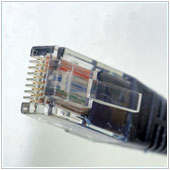| Is your password secure? |
Many of the major security threats that harm a business have one factor in common – a hacker gaining access to systems by cracking a user’s password. The one reason hackers are able to get into systems again and again is largely because users often don’t pick strong enough passwords. Even what we might perceive to be a strong password may not actually be as secure as we think. Sure, when you enter a new password many websites have a bar that indicates how strong your password is, but the issue is, these so called strong passwords are becoming easier to guess as more websites utilize the same requirements. Think about the last time you changed your password. You were likely told to key in a password longer than 6-8 characters, with at least one capital letter, one number, and a special character like ‘!’ or ‘$’. Many major systems have these exact, or at least very similar, requirements for password setting. However, If this is the norm, and you use a password like this too often then your passwords likely aren’t as secure as you might believe them to be. The reason for this is because of the way hackers usually capture passwords. The most common method adopted is brute force – getting a username then trying every password combination until the hacker finds one that works. There are programs you can download from the Internet that try thousands or more passwords a second, and many now include special characters, numbers, and capital letters, which makes finding passwords even easier. How do I know if my password is secure?In an effort to showcase how unsecure some passwords are, Microsoft’s Research (MSR) Center and an intern from Carnegie Mellon University developed a password guesser called Telepathwords. The way it works is you enter the first few letters of your password and the system guesses the next. It uses common letters and combinations to help gauge the effectiveness of a password. For example, if your password begins with the letter ‘v’, it will tell you that ‘I’, ‘S’ and ‘A’ are the most common letters to follow. If the next letter of your password isn’t one of these three, there is a good chance it is more secure. If the second letter is one of these three, then your password is less secure. This may sound a little complicated, but you should check out the system here. It is eerie at how accurate the next letters and characters often match, and this is a good tool to determine whether to create a more robust password. You don’t have to worry about testing your password out either as Microsoft has noted that they don’t track the keystrokes, so you password should remain secure. How do I create a stronger password?Ask 10 experts and you will likely get 10 different answers as to what makes a strong password. Here are three different ways to create secure passwords:
Regardless of what type of password you develop, you should be aware that even strong passwords can still be cracked with enough persistence. So, you should be sure to change passwords on a regular basis and also not to use the same one twice. This will limit the chances of hackers being able to access your other accounts. If you are looking for more ways to secure your systems, we can help, so get in touch with us today. Published with permission from TechAdvisory.org. Source.
|
| BCP vs DR - what's the difference? |
|
| Get more out of LinkedIn |
|
| 5 net-blocking apps for productivity |
|
| Managing mobile contacts |
|


 The number of accounts and websites we have to log in to is growing, and will continue to do so for the foreseeable future. One downside of this increased activity is that security breaches will also continue to rise as well. When it comes to security, often the weakest points are the passwords people use. Far too many passwords are weak and easily guessed, which puts systems and data at risk.
The number of accounts and websites we have to log in to is growing, and will continue to do so for the foreseeable future. One downside of this increased activity is that security breaches will also continue to rise as well. When it comes to security, often the weakest points are the passwords people use. Far too many passwords are weak and easily guessed, which puts systems and data at risk. It appears as if there is an increase in disasters striking companies around the globe. From something as small as a hacker stealing important information, to as large as a disaster that leaves your premises in ruins, disaster can strike at any time. Many companies are starting to develop plans to prepare for any disasters, two of the most common being Disaster Recovery (DR) and a Business Continuity Plan (BCP).
It appears as if there is an increase in disasters striking companies around the globe. From something as small as a hacker stealing important information, to as large as a disaster that leaves your premises in ruins, disaster can strike at any time. Many companies are starting to develop plans to prepare for any disasters, two of the most common being Disaster Recovery (DR) and a Business Continuity Plan (BCP). Websites like LinkedIn have quickly become the most popular, influential and arguably most useful to business users. LinkedIn is a social network, so if you have a profile it is a good idea to interact with other users. However, it is slightly different than other social media sites in that it’s mainly aimed at businesses looking to to connect with other businesses and professionals to connect with their colleagues.
Websites like LinkedIn have quickly become the most popular, influential and arguably most useful to business users. LinkedIn is a social network, so if you have a profile it is a good idea to interact with other users. However, it is slightly different than other social media sites in that it’s mainly aimed at businesses looking to to connect with other businesses and professionals to connect with their colleagues. Being productive at work is a struggle for many people. While the Internet can be a marvellous way to boost productivity, it’s also one of the more common productivity killers. From sites like Facebook and Twitter, to games installed on your computer, there are numerous ways your productivity can be hampered. Luckily, there are steps you can take to minimize distractions.
Being productive at work is a struggle for many people. While the Internet can be a marvellous way to boost productivity, it’s also one of the more common productivity killers. From sites like Facebook and Twitter, to games installed on your computer, there are numerous ways your productivity can be hampered. Luckily, there are steps you can take to minimize distractions. The smartphone is an all-singing-all-dancing device and yet in an era of multi-media, there’s nothing that cuts to business like a phone call. If you have a phone, you likely have a large number of contacts, but have you ever tried to manage these contacts from your device? If you have then you’ll know that it’s not that easy. One option is to actually edit or manage your contacts directly from your computer instead.
The smartphone is an all-singing-all-dancing device and yet in an era of multi-media, there’s nothing that cuts to business like a phone call. If you have a phone, you likely have a large number of contacts, but have you ever tried to manage these contacts from your device? If you have then you’ll know that it’s not that easy. One option is to actually edit or manage your contacts directly from your computer instead.